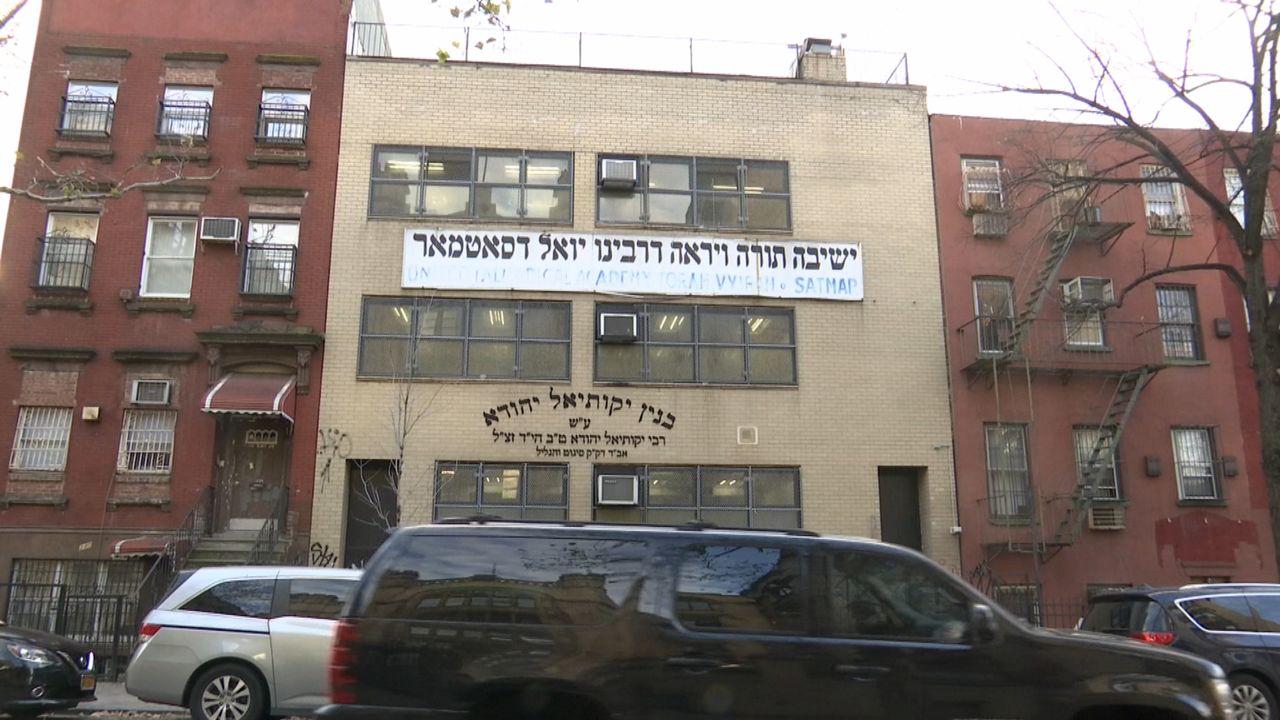NEW YORK (AP) — Private and religious schools that don't provide instruction "substantially equivalent" to New York state's public schools will be threatened with loss of funding for textbooks, transportation, and other services under new state Education Department rules.
The guidelines released Tuesday apply to all private schools. But they could have an immediate impact on Orthodox Jewish schools that critics have accused of providing little or no instruction in secular subjects like English and math.
An estimated 115,000 children attend Orthodox Jewish yeshivas in New York state.
"Although we are still reviewing NYSED's [New York State Education Department] guidelines, we have always believed that updated guidelines are an important step toward bringing about useful oversight of secular instruction at ultra-Orthodox yeshivas in New York," said Naftuli Moster, the founder of Young Advocates for Fair Education, or YAFFED, a group that advocates for improved secular education at yeshivas.
A BREAKDOWN OF SOME OF THE NEW RULES
After years of murky rules that haven't been enforced, the Education Department gave guidelines Tuesday about what non-public schools must teach and how they should be inspected. Some of those rules include:
- The City Education Department must inspect about 800 private and religious schools every five years.
- Non-public middle schools must provide 72 minutes of math education every day.
- Schools must provide sample lesson plans; lists of textbooks; samples of daily, weekly, monthly, and yearly schedules; the framework for education in English, math, science, and social studies.
- If a school is still not in compliance, government-funded services like textbooks and transportation could be withheld, and students would ultimately be directed to go to another school or be declared truant, state Education Commissioner MaryEllen Elia said.
"The State has given the DOE clear authority to visit and evaluate all non-public schools," the city Education Department said in a statement. "We will begin visits, evaluations, and recommendations and findings of substantial equivalency as soon as we've completed the training." Training is slated to begin in December.
A NEW MANDATE IN A CITY INVESTIGATION
The state has long required private schools to meet the same education standards as public schools, but no one ever really checked that this was being done.
New York City — which had been for three years investigating whether a few dozen yeshivas have been providing an adequate amount of secular education — is now required to inspect all non-public schools by December 2021.
The city said it will start inspecting the six high school yeshivas it says has denied inspectors access for the past three years, and complete recommendations for the 24 schools it has already visited, before moving on to the other 770 schools.
Critics have said the city had been dragging its feet in investigating yeshivas before, a claim the de Blasio administration has denied.
Elia said "there obviously would be consequences" if schools don't let local education officials in. "If access is not allowed, certainly a determination that a school is providing substantially equivalent instruction cannot be made," she said.
The pro-yeshiva group, Parents for Educational and Religious Liberty in Schools, said it worries local school districts may use these guidelines "as license to intrude into the fundamental working and mission of religious schools."
The group said in a statement, "Any attempt to impose uniformity on the almost 1,800 nonpublic schools in New York State, however well-intentioned, is only going to succeed if it appropriately accounts for the uniqueness of our schools and our educational system."
A bill passed pushed through the state legislature last spring by state Sen. Simcha Felder, a Democrat who has caucused with Republicans, puts yeshivas under the authority of the state rather than local education officials.
Yeshiva critics say the law waters down enforcement, but Elia said local education officials will still be charged with visiting the schools that are subject to the so-called Felder amendment and will pass on their findings to the state.
Moster, whose group filed a federal lawsuit over the Felder amendment, said Tuesday's announcement by the state Education Department won't affect the lawsuit.
"While these revised guidelines do not address the unconstitutionality of the April 2018 Felder Amendment to the New York Compulsory Education Law, they are important to help continue the dialogue we must have to truly reform the system," he said in a statement.
